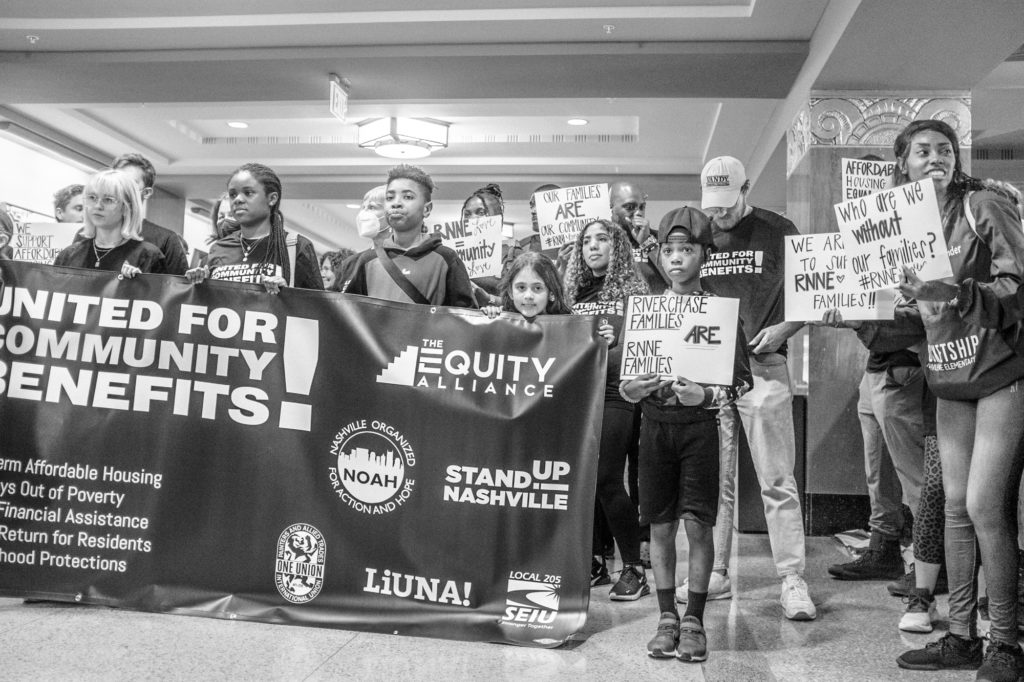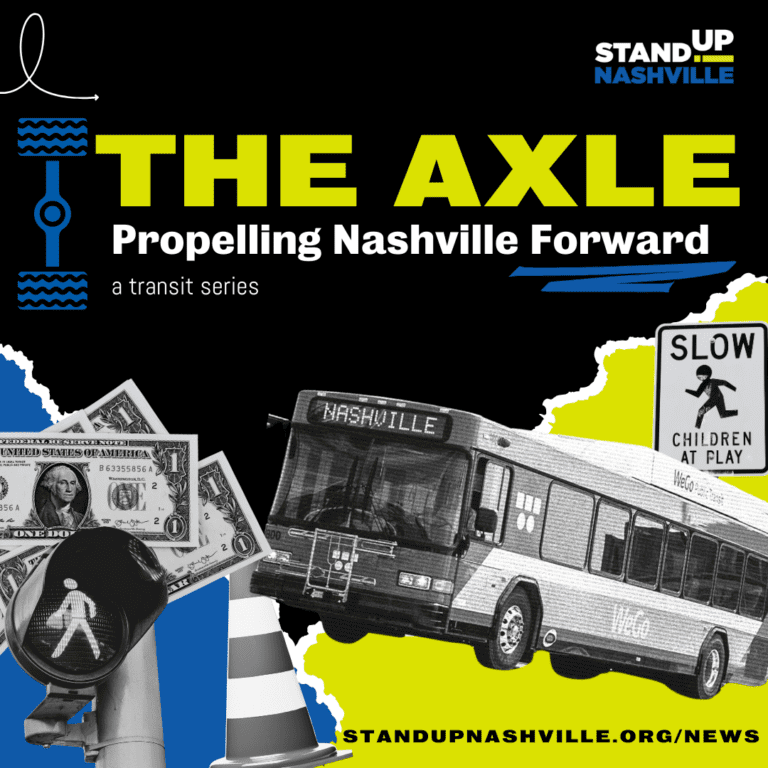Today, negotiations for a Community Benefits Agreement (CBA) with Texas-based real estate developer CREA reached an impasse over lack of affordability offered at the proposed new development at the current RiverChase site.
Our negotiating team came to the table prepared to compromise on a number of issues, but both sides realized we could not move forward with a CBA when our numbers were so drastically different.
“With their current plan, no current RiverChase resident can afford to come back to the property. Who is it affordable for?” said Tamika White, Director of Programs and Special Projects at The Equity Alliance and member of the negotiating team.
For the units CREA intends to develop, Stand Up Nashville originally requested affordable units at 30% of the Area Median Income (AMI). SUN was willing to compromise up to 65% AMI, but CREA would not go below 80%, which amounts to a yearly income of $75,450.
“A great number of middle and working class Nashvillians would not be able to afford that rent, much less the residents of RiverChase,” White said.
Though CREA has continued to promise that current residents will have a right to return, in practice, it would be completely impossible for any current resident to afford it, a fact acknowledged by a CREA representative in talks today.
But the blame doesn’t fall squarely on this individual developer – it lies with an accepted culture of putting out-of-town investment over the livelihoods of our own residents.
“CREA didn’t know what they were getting into in negotiating a CBA, because this is a city that has let developers and investors lead the conversation about affordable housing. It’s like letting a fox watch the hen house,” said Michael Callahan-Kapoor, Acting Executive Director for SUN. “How could this developer expect anything else but to get exactly what they want?”
Without systemic change at the state and local level, this problem will only get worse.
“This model is unsustainable and it is going to break our city. We’re on a fast track to look like San Francisco, where middle and working class people can’t afford to live in the city at all,” said Kay Bowers of Nashville Organized for Action and Hope (NOAH). “We are moving towards a Nashville where not a single public worker, teacher, firefighter, restaurant worker or retail worker could afford to stay in Davidson County.”
We are open to resuming talks with CREA, but we will not budge on affordable housing. SUN knows the stakes, we know what Nashvillians can actually afford, and we know that wages are not rising to make this any easier on current residents.
With the East Bank development coming very soon, it will be up to the Metro Council and Tennessee state officials to do everything in their power to ensure that middle and working class people still have a place in this city. This isn’t a “looming” crisis that is “threatening” the future of our city, it’s an active, all-out emergency for anyone in Davidson County who makes less than $100,000, and it will not be solved until everyone understands the immediacy and reality of this emergency.







